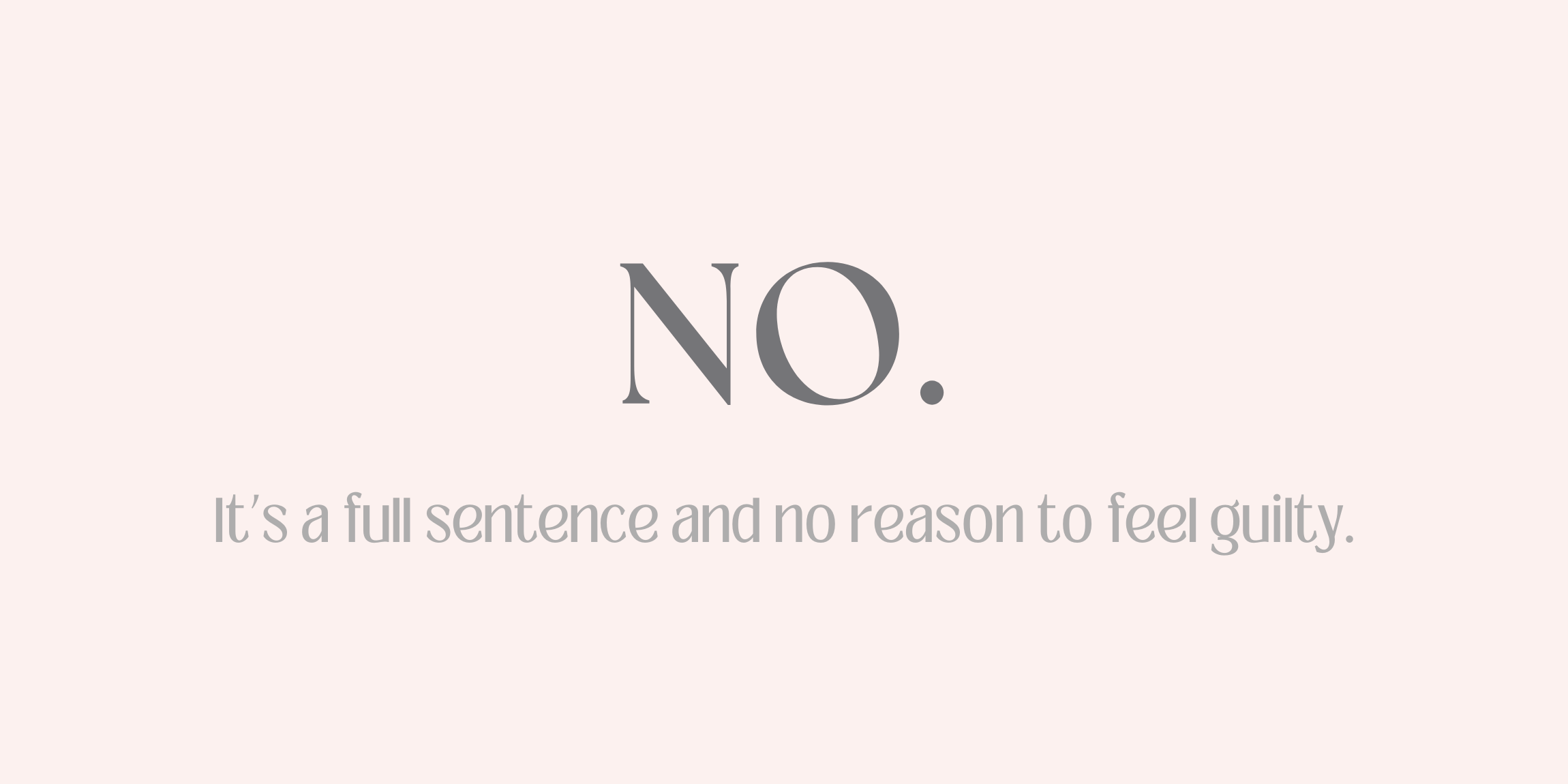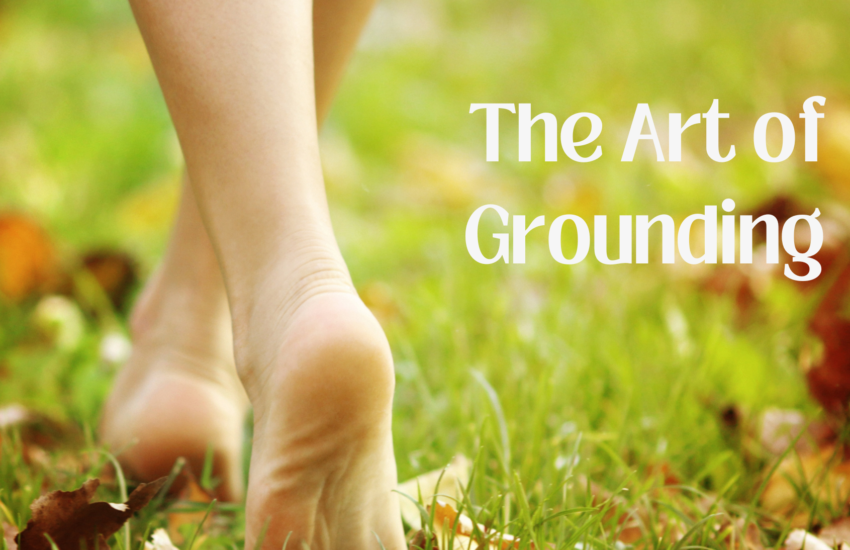How to Say NO (and still keep your friends)
It sounds so simple.
It’s a two-letter word.
It’s one of the first words we learn, and as children, we use it constantly.
But as we get older, no becomes more difficult to say. As we develop things like empathy and a sense of how our actions impact others, no becomes harder.
No is a tricky word. As parents, we can’t let our kids say no to us. It’s a safety issue, not to mention a matter of respect. But in the formative years, when saying no becomes a reason for punishment, it subconsciously seeps into the dirty word category.
No is NOT a dirty word. There is power in no. When children say no, it’s their way of exerting their power. It’s their way of controlling their environment and their situation. As adults, there is equal power in no. But by the time we’re adults, we’ve become conditioned by other peoples’ reaction to our no. We learn people don’t like hearing it and we want to be liked. We want to make people happy and no makes people unhappy. So, we avoid it. We say yes when we don’t want to and in doing so, we lose our power and control over our lives.
Learning to say no is a skill, and just like any skill, it takes practice. It’s uncomfortable at first, but the more we do it, the easier it becomes. The key to saying no is to mean it. There’s nothing less convincing than a no that comes out like a question or one that’s followed by a lengthy explanation. If you give people a lengthy reason for your no, they’ll look at it as an invitation to tell you exactly how you CAN do it.
I’ve found honesty is always best. I can truly say that friends have asked me if I want to get the kids together and I’ve said, “Nope, not putting on a bra today or doing anything else.” People react to brutal honesty differently than they do excuses.
If you don’t have an answer off the top of your head, it’s okay to say, “let me think about this for a minute,” take a beat – tell them you’ll call them back if you need to – and then answer when you know if you want to commit or not.
It’s also just fine to tell people that you’re working on not over-committing and your instinct is to say yes, but you know it’s better for you if you say no. People respect honesty, even when you’re telling them no. And anyone who can’t respect a no when you’re trying to take care of yourself isn’t your person anyway.
It’s important to remember that toxic relationships can still make us feel good.
We all have those friends that we love and that are still healthy relationships, but for whatever reason, they expect us to say yes. Maybe you haven’t set up boundaries and you’re just now trying to set them up. That’s okay. A good friendship can weather an adjustment period. Be honest and tell them you’re feeling overwhelmed. If they can’t take no after that, it may be time to distance yourself from that person.
It’s important to remember that toxic relationships can still make us feel good. It’s feels good to be wanted or needed. It’s human nature. But if someone isn’t allowing you to take care of yourself, it’s time to reevaluate the health of that relationship.
When you’re just starting out with saying no, sometimes softening the blow makes it easier for us to try it out and makes it easier for others to hear.
Qualifying words like “just” or “actually” make our words softer. It’s a habit women have more than men which is why a man’s speech tends to be perceived as more powerful, so these definitely aren’t phrases you want to use in the boardroom, but for friends or family who are asking too much, these have worked well for me:
“You know what, I just can’t commit to anything right now.”
“I’d love to, but I just can’t.”
“I can’t right now, but maybe next time.”
“I’m at max capacity right now.”
“Thanks for thinking of me, but that’s just not going to work for me/I can’t fit that in.”
Part of saying no is becoming comfortable with people not liking your answer. No one likes to be told no, and some people will view it as a challenge to change your mind. You need to be comfortable enough in your own skin to accept that when you say no, people aren’t going to like that answer. The real problem is not in us saying no, it’s that someone else isn’t getting their way and it’s easy for some to mentally and emotionally revert back to a child hearing the word no. They may not kick and scream and throw a temper tantrum like a toddler, but that’s exactly what’s happening internally.
So, before you embark on your journey of no, ask yourself a couple of things:
- Who am I living my life for?
- What are my values – what are the most important things to me in my life and am I willing to protect them?
Every yes we give to others is a no to something else that may be more important to us. When we say yes to a ton of little things we aren’t intentional about, we’re saying no to the big things. We’re also saying no to downtime and self-care. We can’t keep giving to others and expect it to fill us. There is absolutely fulfillment in helping others, but it can’t come at a cost to ourselves. We get the most benefit and fulfillment from helping others when we are in a position to help – when we have created the space to be able to help, and often that means saying no to certain things.
No doesn’t just have to be to people either. It can be to things you think you are supposed to do, like have a perfectly clean house or have everything in your life be Instagram perfect. If those are your core values, great. But if they’re not, say no.
As you begin to say no to the little things and yes to the big things, it’s also important to remember to respect other’s no’s. We need to remember it’s not personal. It’s not about us, it’s about them and where they are in their lives. No doesn’t mean “I don’t like you.” No simply means, “It’s not right for me right now.” Part of embarking on our own journey of no is making sure we respect the same journey in others and not let ourselves emotionally revert to a child being told no. Someone else’s no doesn’t define our lives, only we can do that. If we’ve said no to the little things and we’ve created space in our lives, then we’ve also made room to comfortably accept someone else’s no.
SHARE



